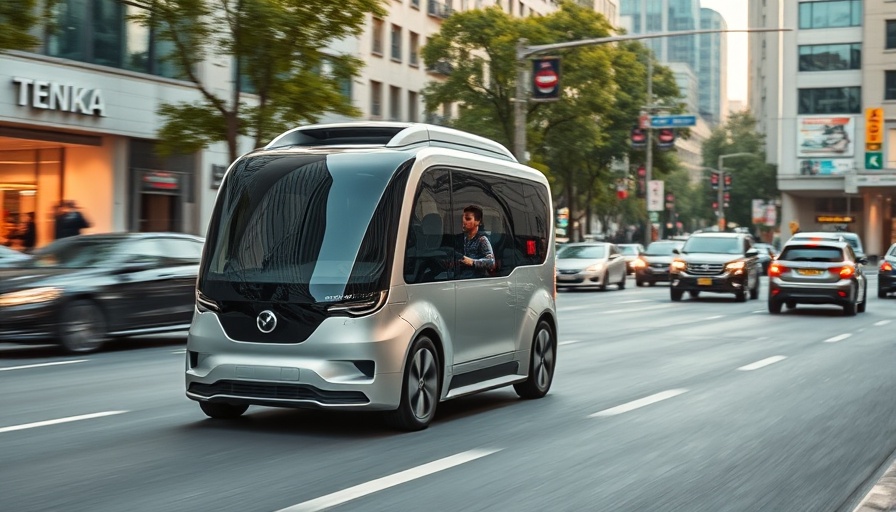
Lyft and May Mobility: Pioneering Atlanta's Robotaxi Revolution
In an exciting development for the transportation landscape, Lyft is teaming up with May Mobility to launch what is poised to be Atlanta's first robotaxi service by summer 2025. This collaboration promises to reshape how citizens navigate the city, offering a glimpse into the future of mobility.
The Implications of Robotaxis for Auto Sales Training
As the automotive industry adapts to the advent of autonomous vehicles, auto sales training will need to evolve. Dealerships, especially in metropolitan areas like Atlanta, will require training programs that focus on selling and servicing new technologies. Understanding the functionalities and advantages of robotaxi services will empower sales teams to better address customer inquiries and guide them through the transition from traditional car ownership.
What This Means for Consumers and Dealership Owners
The deployment of robotaxis represents a larger trend towards shared mobility, which could significantly reduce the demand for personal vehicle ownership in urban settings. For dealership owners, this shift necessitates a rethinking of business models. Customers may be less inclined to purchase vehicles if they can rely on affordable, on-demand transportation. This transition highlights the need for dealerships to reinforce their value propositions through enhanced service offerings and diversified sales training.
Potential Challenges and Opportunities Ahead
While the news of the robotaxi service may signal progress, it also brings about challenges. Regulatory hurdles, public safety concerns, and the acceptance of autonomous technology by the public remain prominent issues. However, these challenges also present an opportunity for dealerships to innovate their training programs. By incorporating insights on robotics and technology, sales teams will enhance their knowledge and appeal to future-focused customers.
Emerging Trends in Mobility and Consumer Behavior
The trend toward shared mobility is coupled with an increasing consumer preference for flexible transportation options. As cities become more congested, the appeal of services like robotaxis will grow, particularly among younger generations who value experience over ownership. Dealers who recognize these shifts and adapt their training strategies accordingly will be better positioned to capture the hearts and wallets of future clients.
Taking Action: Preparing for the Future of Auto Sales
In light of these developments, dealership owners and GMs must prioritize the education and training of their sales staff. Engaging in auto salesman training that includes modules on advancements in mobility and handling inquiries about robotaxi services will ensure that dealerships remain relevant in a transforming market. Furthermore, forward-thinking training sessions that focus on technology trends can prepare sales teams for the revolution in consumer preferences and sales dynamics.
As Lyft and May Mobility prepare to rollout their robotaxi services, the onus is on dealerships to pivot and align their offerings with the evolving landscape of mobility. By investing in auto sales training now, they can emerge stronger amidst this change.
 Add Row
Add Row  Add
Add 

 Add Row
Add Row  Add Element
Add Element 




Write A Comment